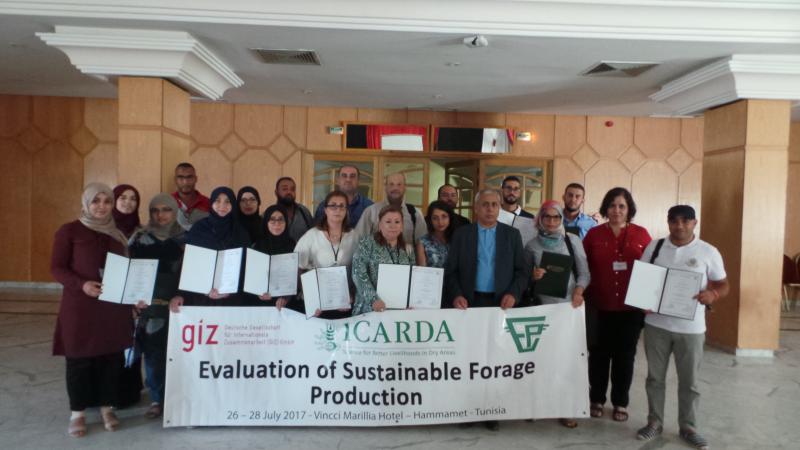Raising the capacity of agricultural engineers

Tunisia's livestock sector contributes more than 40% to the country's agricultural production and allows smallholder farmers to generate additional income. However, forage production remains extremely limited, increasing the reliance on costly feed imports.
To address this challenge in Tunisia, ICARDA recently conducted a training course on the evaluation of sustainable forage production to enhance the capacity of agricultural engineers involved in forage production and management.
The course was organized as part of the GIZ-funded project “Provision of proven feed resource technologies to improve the red meat value chain in Tunisia.”
“The purpose of the training was to enhance the capacity of Tunisian partners working on forage production and management,” said Dr. Mounir Louhaichi, Rangelands Ecology and Management Research Scientist at ICARDA.
More than 20 participants representing the Office of Livestock and Pasture ( OEP ) and the School of Higher Education of Mateur ( Ecole Superieur d’ Agriculture de Mateur ) gained knowledge about theoretical and practical training on the estimation of vegetation cover, forage biomass, quality determination, and the principles of forage experiments in the dry areas.
The ICARDA-led Red Meat Value Chain project aims to eliminate feed gaps and provide adaptation strategies to drought. The project promotes the creation of feed block manufacturing units, the use of cactus as a sustainable source of fodder, fast-track seed multiplication and distribution, and silage production.
